Forbidden Turkmenistan
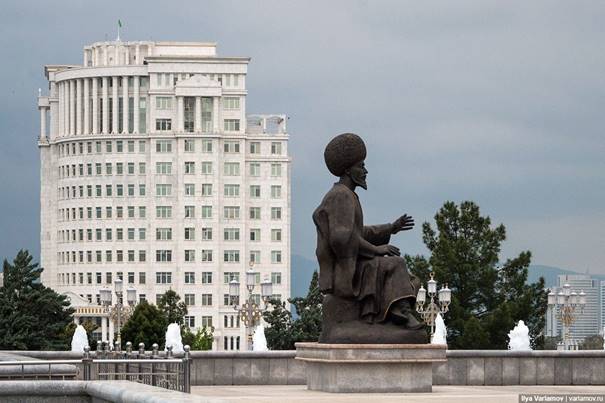
We have learned to explain almost any processes that take place in our lives. We know that the sun rises because the Earth rotates, the plane flies to Turkmenistan because of lift, and the streets of Omsk are dirty and there is no asphalt because the mayor is bad. It all seems clear and natural to you. But the world and its laws will change if you come to Turkmenistan. If you ask a Turkmen why a plane is flying to Turkmenistan, he will answer without hesitation: “Because the passengers were given visas, and Gurbanguly Myalikgulyevich, the leader of the nation and our wise ruler, agreed to receive the plane on Turkmen soil.” And why is it dirty in Omsk? “Because the mayor was not shot for sabotage in time.” In Turkmenistan, everything is subject to the will of the leader. Birds do not sing, the sun does not rise, the wind does not blow without the will of the respected Berdimuhamedov, the initiator and inspirer of the era of the new Renaissance and all-encompassing transformations, may God grant him health and strength to carry 5.3 million Turkmens on his shoulders! There are no laws in Turkmenistan. There is the will of the leader. It is above any laws, it illuminates the path of the Turkmens like the sun.
Turkmens have long ceased to think about what they are ordered to do and why. Over the 30 years of independence, they have seen a lot. At first, Turkmenbashi crushed his people like plasticine and constantly introduced new restrictions, then the banner of tyranny was picked up by the new leader Gurbanguly Berdymukhamedov, and the show continued. Today we will talk about what is forbidden to Turkmens.
Most importantly, any dissent is forbidden in Turkmenistan. Generally. Even innocent talk about the fact that a person may not like something in Turkmenistan terrifies the interlocutor. There is no need to talk about protests. People here don’t know what protest is. Even in kitchens, they are afraid to criticize the authorities. Over the years of pressure, Turkmens have learned to find justifications for any that happens to them. A typical conversation with an aboriginal looks like this:
“Tell me, what’s that stick sticking out of your ass?”
“How, what?” Don’t you know, it’s a mop!
“Why do you need a mop in your ass?”
“Why?” Don’t you?
“We don’t, we have people who can walk around without a mop in their ass
“It’s more convenient with a mop, and why go without a mop when you can with one?”
“Can you take it out?”
“Oh, no, of course not! We’ve all been told to walk like that!
“Is there such a law?”
“No, I don’t.
“Who said?”
At this point, the Turkmen usually hangs out, as he himself does not understand who told him this. Well, really: no one says, for example, to hang portraits of the leader everywhere, it’s just customary. Each chief has a portrait of the leader. Why? Away from sin. What sin is and why it is necessary to stay away from it, Turkmens are told on TV. Television is taken very seriously here, because it will tell you anything: TV in Turkmenistan is like a voice from above. Of course, any Turkmen knows that the voice from above is the voice of Berdymukhamedov, may his path be illuminated by the moon and the sun, may the garment of glory shine on him!
For example, since 2015, Turkmenistan has banned the import of black cars into the country. Why? According to Berdymukhamedov, the black color brings bad luck, so no one should drive black cars. Customs officers told the carriers that the reason for the refusal to import was “the inconsistency of the black color with the weather conditions of Turkmenistan.” Hatred of the color black has reached such an extent that in 2014 the police raided cars with black rims.
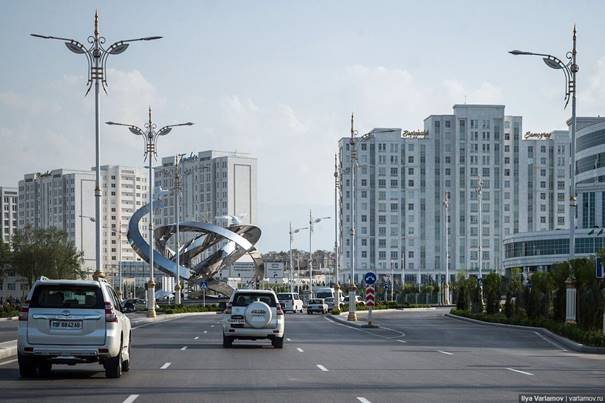
Arkadag himself, by the way, does not like black cars: he has a white Rolls-Royce, the presidential motorcade also consists of white cars, and white official cars are given to high-ranking officials.
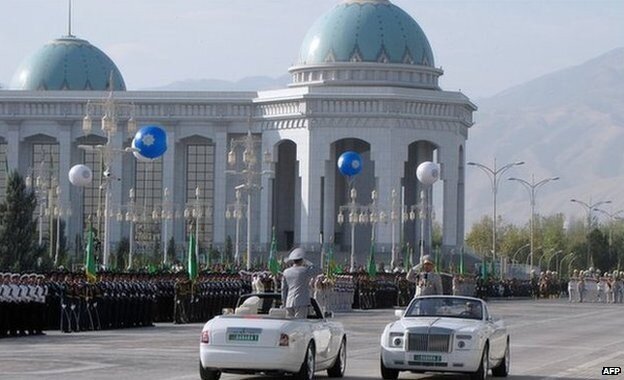
This is not the only insane ban. New rules are emerging all the time. In 2007, the import and operation of right-hand drive cars was banned, in 2009 – the import and operation of cars in the body of coupes and supercars in general. Berdymukhamedov himself has a green Bugatti Veyron, but that doesn’t count.
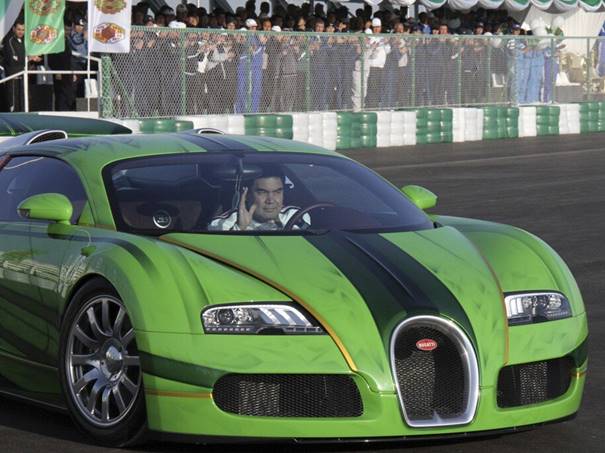
In 2010, the import of cars with an engine capacity of more than 3.5 liters was banned, in 2013 – the import of cars with tinted windows, in 2015 – the import of cars with an engine capacity of less than 1.3 liters. Usually, there are no official rulings on such matters, they just say at the customs that they have received an “order from above”.
Any tuning is prohibited in Turkmenistan. When I asked the Turkmen why there were such bans, he simply explained everything: “If you don’t ban tuning for a Turkmen, he will hang the whole car like a Christmas tree. Then he goes at 3 a.m., gets high, bothers people! At one time, even the signal was banned for a month, and there was a time, and they were deprived of rights for signals!”
In general, it is surprising how people were instilled with such an inferiority complex. Apparently, there is a clause in the manual for dictators: “Tell your people that they are savages, and you are the only one who is smart and knows what to do and how to do it.” Many Turkmens tell you in all seriousness that their people are savage, and this is the only way to call them to order.
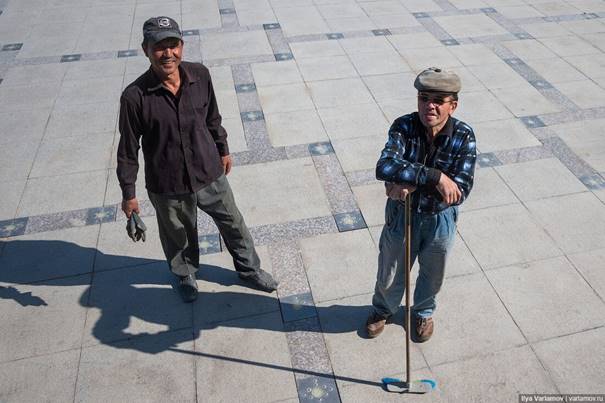
Once there was a case: the nephew of a prosecutor brought himself a BMW Z3. A couple of searches were made, and the prosecutor was imprisoned for 20 years.
Any person can be imprisoned in Turkmenistan. The joke about “if you are not in jail yet, then this is not your merit, but our fault” is not funny at all in Turkmenistan. People disappear, go to jail on false denunciations, and are persecuted. The scale of the disaster is not known for sure, as there is not a single human rights organization operating in Turkmenistan. But judging by the fear in people’s eyes, when you ask about repression, the problem is serious. Here is what Western human rights activists write (they are probably lying…):
“Turkmenistan retains one of the most repressive and authoritarian regimes in the world. Berdymukhamedov came to power after the death of president-for-life Saparmurat Niyazov in December 2006. In the first year, it took some steps to dismantle some of the most odious aspects of Niyazov’s social policy, but no real human rights reforms followed. Hundreds, if not thousands, of people remain behind bars, convicted in unjust trials on allegedly politically motivated charges. Draconian restrictions on freedom of expression, association, assembly, movement, and religion remain.”
A few days ago, a law came into force in Turkmenistan that banned the advertising of casinos, as well as dietary supplements, fortune tellers, erotic massage, pyrotechnics, energy drinks and even infant formula.
It’s strange that sex parlors, firecrackers, and baby food are on the same list, but that’s not what we’re talking about. The point about the casino is curious. The fact is that there are practically no casinos in the country. Previously, they existed in all major hotels in Ashgabat (“Grand Turkmen”, “Ak-Altyn”, etc.), but then Berdymukhamedov decided that tourists were already fat, and ordered to close everything. Moreover, a special law that would have banned gambling activities in the country was never adopted. Well, it’s a common situation for Turkmenistan.
In 2012, Ashgabat owners of casinos and nightclubs (of which, frankly, there were not many anyway) were ordered to close their shops and migrate in formation to the west, to the international tourist zone of Avaza. It was built from scratch near the city of Turkmenbashi (formerly Krasnovodsk) on the Caspian Sea. But in the end, nothing was opened in Avaza.
The only place in Ashgabat where gambling is definitely allowed now is the State Hippodrome. There, judging by the reviews of tourists, it is still possible to place bets. I didn’t make it to the racetrack.
Soon after Berdymukhamedov came to power, the flow of emigrants from Turkmenistan tripled. People went abroad on tourist visas, settling in different countries as illegal immigrants. Most of all, people went to Turkey, Iran, Russia and the UAE, as well as to Europe.
It should be noted here that people began to leave not because after the death of Turkmenbashi it became very bad, but simply because the border became a little more open. But Berdymukhamedov did not like the fact that people allowed themselves to go somewhere. Why don’t they all like golden statues?
The authorities decided to ban certain categories of the population from leaving the country, and at the same time to draw up a black list of persons who are ordered not to cross the border either there or back.
In 2010, human rights activists found that Berdymukhamedov’s list included 37,057 people, including 1,748 Russian citizens. In addition, the authorities are happy to ban relatives of dissidents from leaving the country, and for life. And Turkmen students are not allowed to study in neighboring Kyrgyzstan, fearing that they will return with a breath of freedom and demand respect for human rights. It is also almost impossible for doctors and journalists to leave the country.
In accordance with the law “On Migration”, citizens who have access to state secrets are prohibited from leaving the country. In fact, not only employees of the Ministry of National Security (MNS) are not released, for example, but also minor officials on the ground.
A funny clause in the law: if a person’s departure “contradicts the interests of Turkmenistan’s national security,” he will not be released. It is clear that anyone can be brought under this point. And there is an even more convenient point: a person can be refused to leave the country if there are “fears” that he may fall into slavery abroad.
Turkmens themselves do not always know for sure whether they can leave or not. For example, one employee of a state bank told me how he was turned away at the border when he wanted to go to Uzbekistan: it turns out that employees of state banks are not allowed either!
But there is another problem with going abroad. Now Turkmenistan has banned the sale of dollars. How to go abroad without currency? It’s very simple (hahaha). You deposit money in a bank account, and when you leave, the migration service informs the bank that you have left, and in the country of destination, you will be kindly allowed to withdraw the approved amount from an ATM.
Turkmenistan is the only country in the world where its citizens are beaten harder than foreigners at the border, especially when they leave. A border guard interrogates each Turkmen, checks some documents and papers, and studies the route and destinations.
And what about the media? Everything is sad. In 2013, the country passed a law that guarantees complete freedom of the media in Turkmenistan.
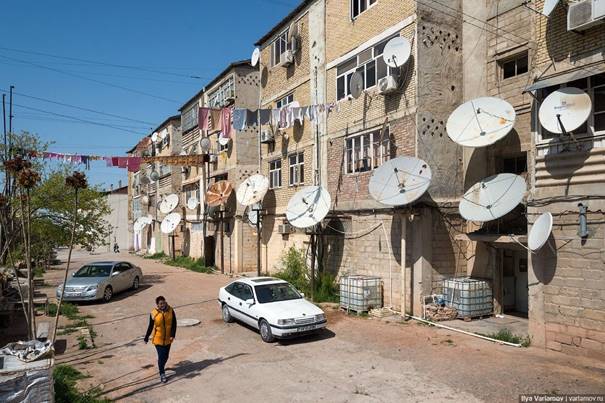
In fact, the opposite is true. Newspapers mostly publish official reports on how much grain has been harvested, how much gas has been produced, how well everything is and how the country is building democracy. There are no reports of any incidents and problems that concern people there. All important news is usually relayed by hearsay. The ban on the import of foreign printed press into the country, introduced by Turkmenbashi, is still in effect.
According to the UN, 5% of the population, or 250,000 people, use the Internet in Turkmenistan. The internet is very slow and expensive. There is no Wi-Fi in cafes and restaurants, I met it only in expensive hotels for foreigners, where it is also half-dead.
But even if you go online, many sites will be blocked. First of all, opposition websites, websites of human rights organizations and Western social networks are blocked in Turkmenistan. For residents of the country, access to Facebook and Twitter, YouTube, messengers such as Viber, WeChat, WhatsApp and even Telegram also do not work. The websites of many media outlets, including Russian ones, have been blocked. For example, you won’t go to Yandex.News. LiveJournal has been shut down, and almost all sites that have videos have been shut down. The funniest thing is that in 2013, Turkmenistan even blocked a section of the Russian president’s website letters.kremlin.ru, through which the country’s oppressed population tried to complain to Putin.
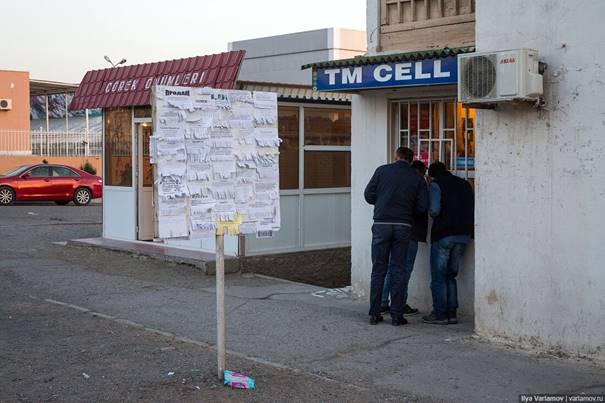
In 2012, they say, they began to block anonymizers so that no one could access banned sites. By the way, I couldn’t run the VPN on my laptop. All the methods known to me, which worked even in China, did not work in Turkmenistan.
By the way, it is much easier for the Turkmen authorities than for the Russian ones. We still have a rather complicated scheme with Roskomnadzor and providers. And there are only two providers on the territory of Berdymukhamedov, and both of them are tied to the Turkmentelecom corporation. That is, any site can be blocked instantly and manually. And that’s what is being done. By the way, varlamov.ru works in Turkmenistan. Let’s see how quickly they block me.
Reporters Without Borders has included President Berdymukhamedov in a list of 39 world leaders and politicians whom it considers “enemies of freedom and information.” She says that “all Turkmen media are in practice controlled by the state, which uses them for propaganda and severely punishes anyone for the slightest deviation from the official line. The new media law is too far from reality to even be analysed.”
This is what a kiosk with the local press looks like:
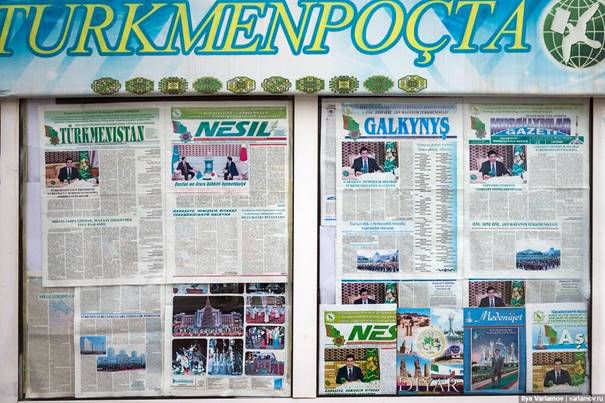
Take a closer look, doesn’t anything bother you? Yes, that’s right, all newspapers should have a photo of the national leader on the front page. Sure. At the same time, the title photo is sent centrally, and it is the same for everyone. From this photo, you can understand how fresh the newspaper is! And Turkmens can play the game “Collect all the portraits of the president”!
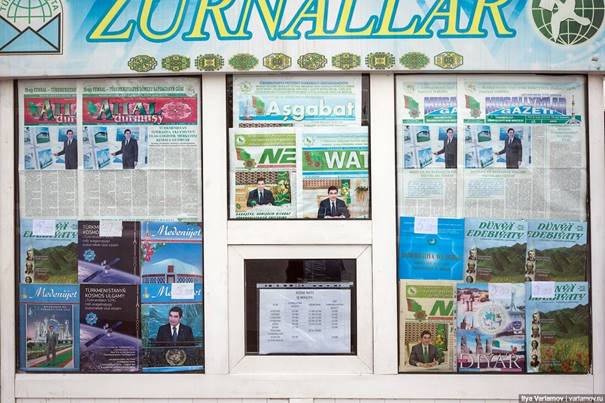
Recently, the leader of the nation decided to ban smoking. Everything was covered up by good thoughts about the health of the nation. According to a cunning plan, by 2025 there should be no smokers left in Turkmenistan. At first, new taxes and duties began to be introduced, at some point cigarettes disappeared from the shelves altogether and became very expensive (600 rubles per pack). But then it turned out that the state simply decided to take over the entire tobacco turnover in the country. Now cigarettes are sold only in the right places, and they cost about 200 rubles per pack.
But even if you buy cigarettes, it will be difficult for you to smoke. Smoking is banned almost everywhere. You can’t smoke on the street, you can’t smoke while driving. Hookahs are prohibited.
During the wedding, the newlyweds are required to be photographed against the background of the portrait of the president. Their wedding album should contain at least three photos with Berdymukhamedov. No official document has been issued on this matter, but registry office employees say that this is a mandatory requirement.
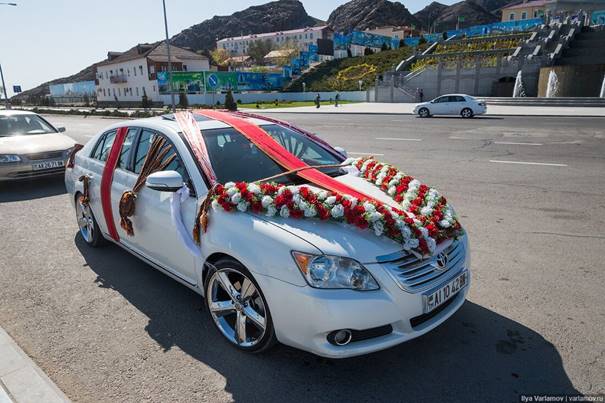
Interestingly, Turkmens are not even allowed to work in peace. Recently, residents of the regions of Turkmenistan were banned from working in Ashgabat without permission from the Ministry of Labor and Social Protection, thereby equating them with foreigners. Berdymukhamedov’s decree has not been published anywhere, but it is already being readily implemented: residents of the regions are being evicted from rented apartments and actually forced to leave Ashgabat.
It is also forbidden to take pictures freely in Turkmenistan. You can’t take pictures of airports, train stations, government buildings, markets, people in uniform. Since people in uniform in Turkmenistan are like sand in the desert, you can’t take pictures of anything at all. The sight of a camera terrifies Turkmens, especially near government buildings.
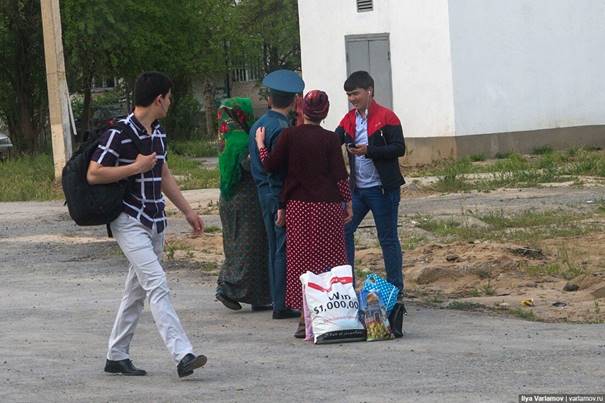
Surprisingly, there are no photos of many objects on the web at all! Due to the ban on filming police officers, there are no onlookers in Turkmenistan. If something happens, no one takes out their phones and shoots them, no one posts videos on YouTube, because YouTube is also banned.
I will make a separate big post about the ban on photos in the evening.
During my entire stay in Turkmenistan, I have never seen a single stray dog or cat walking in the yard. All the dogs were chained behind the fence. There were no cats at all. The media write that they do not stand on ceremony with stray animals in Turkmenistan. For example, before Berdymukhamedov’s arrival, stray dogs and cats were rounded up in the cities of Balkanabat and Turkmenbashi. Everyone in sight was killed, and the corpses were taken to the city dump. One resident of Ashgabat said that sometimes livestockers catch domestic animals and then demand a ransom from the owners.
A domestic cat fell out of the window of one of the houses in Turkmenbashi… Hopefully she’ll be able to climb back in before she’s discovered by the scavengers.
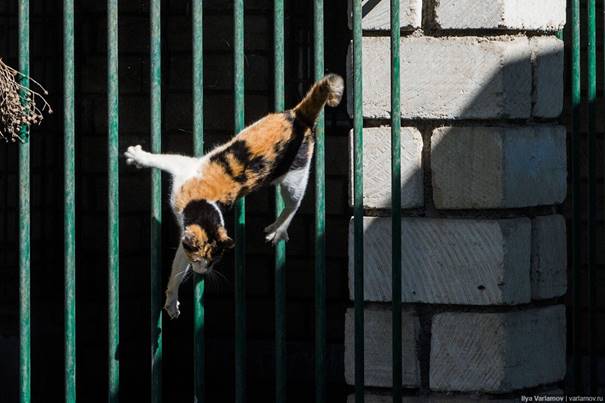
The war on domestic animals began under Niyazov, who is said to have hated dogs. Rumor has it that the dogs and cats fell out of favor with the tsar, as one day a stray dog allowed himself to wander into the forbidden territory near the presidential palace. Yes, pedestrian traffic is restricted in the center of Ashgabat so that their gloomy figures do not cast a shadow on the golden palaces of the leader.
It is necessary to live in Turkmenistan without casting a shadow.
